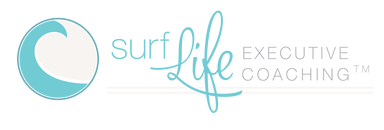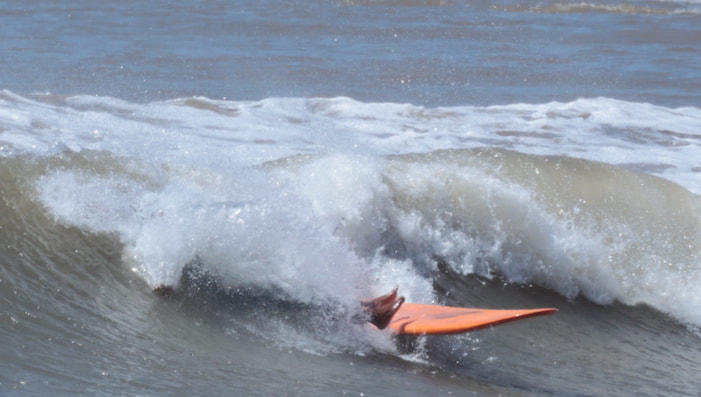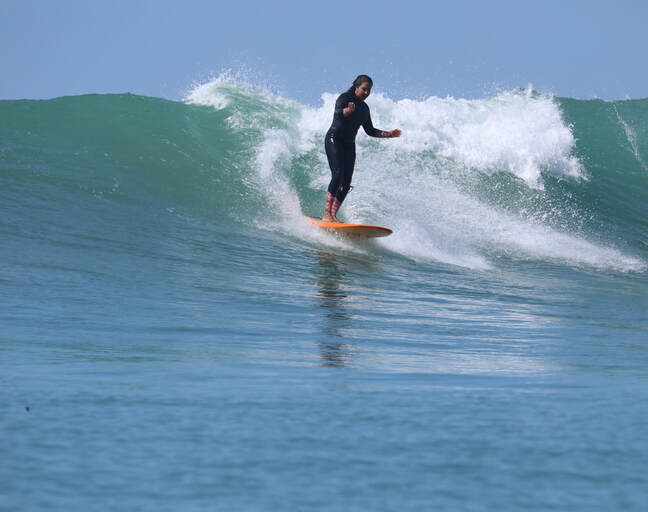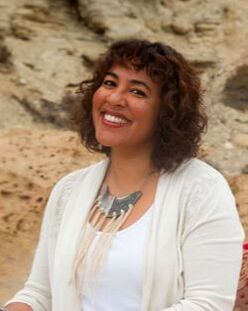|
I’ve been writing a lot of late about the non-profit I ran of 11 years that closed. It had a worthy mission to economically empower immigrant and refugee women through entrepreneurship and English training in the San Francisco Bay Area. After 10 years running it, I took a sabbatical for rest and much needed time off. Upon returning, I came back to a skeleton of an organization that was running a $50,000 deficit, all occurring while I was gone. There were many narratives as to exactly why we ended up in this position. The interim leader’s narrative ranged from ‘I was left to manage a house of cards’ to ‘the staff was not matched in the right positions for their skill sets’ to ‘our board chair wasn’t strong enough.’ Some of the Board Members’ narratives were ‘you can’t leave for 4 months and expect everything to be hunky dory’ to ‘you left a COO in charge, not a CEO’ to ‘you didn’t share with us how much this was being run like a start-up.’ Some staff outright blamed the interim leader, some the Board. The most corporate members of the Board blamed me, because to their mindset, the buck stops with the CEO. Forget about any non-profit, “kumbaya” notion of shared leadership. It was a terrible time trying to stay afloat amidst a whirling sea of vastly different narratives. As well, there was the backdrop of the recession we were in at the time, which was more fact than narrative. After having ample time to reflect, heal, do my own internal work, what became apparent to me was that I never really formed my own narrative in the process. I listened to everyone else’s. At one time, I had been the outreach person for this organization, the programs person, the grant writer, the major gifts fundraiser, the website developer, the bookkeeper, the computer tech person, the visionary leader. I grew an idea I started from my bedroom desk when I was 24 years old with $1,000 into an incorporated non-profit organization with an official Board. I was the one person with 360 degree experience of the entire enterprise. And much like a deer in headlights, I was so caught off guard coming back to this I could not even form my own narrative. While having my own narrative was important to me in making sense of this all, I also learned that when things go South like this, it never is about any one person’s narrative. Ask anyone and they would all have a different perspective as to the “why” of this situation based on their own life experience or values. To them, their version IS the truth. As a leader looking back on this, I can say the learning is that we have to take responsibility and accountability for each of our roles in leadership. The learning is that nobody is perfect. The learning is in believing everyone did the best they could in the given circumstances, recession and all. Sometimes that is all we can do. We should own up to our shortfalls versus passing the blame and trying to justify why something wasn’t our fault, or our responsibility. We should understand we were all accountable in some way, and that for great ideas or organizations to thrive, the leadership must be shared. Going forward, I choose a no frills narrative of “what’s so. “ What’s so is I founded and ran a great non-profit, co-built together with wonderful colleagues, Board members, advisors, funders, volunteers and staff. What’s so is I went away for a much deserved break on a Board approved sabbatical. What’s so is the organizational leadership was not able to raise sufficient funds or effectively orchestrate the team to achieve their goals. What’s so is upon my return, we attempted to merge the organization with a larger non-profit. What’s so is we were unable to do so for various reasons, including the recession. What’s so is we closed. What’s so is I learned the lessons of a lifetime. That’s what’s so. Farhana Huq is an Executive and Leadership Coach, Surfer, Global Explorer, and Founder of Surf Life Executive Coaching and Brown Girl Surf
0 Comments
Journal Excerpt: The Fall of C.E.O. Women, The Start of brown girl surf December 18, 2011 I’m alive and I have all my limbs so I’m trying to put the closing into perspective. A lot has been done to dismantle the (C.E.O. Women) office. We’ve sold most of our assets last week and this week is the final push. The only thing is that we have no staff left – I’m the only one and so I have to manage all of the following:
I sent this list to my board chair and treasurer to let them know … But as it is, I’m left as the only one trying to manage the final three days of closing of the office. People expect way too much when you are a Founder. The good news is that I raised an extra $15,000 from foundations and donors and that the government approved our $20,000 reimbursement request so we will have enough for payroll, which will limit the board’s liability. They were going to float a loan for payroll as well which I was happy about but now they don’t need to. My friend and board member gave me a $1,750 (personal) loan to tide me over until we can collect on all the grants. … I have been actively trying to find a home for Grand Café in it all … because we owe the bank for our line of credit … It is a hard decision because that is nine years of work/research that went into building that asset (and $500,000) and I’m not sure what the bank will do with it at this point but I want it to land somewhere good, but I also want this to be done, so I’m torn … I have been surfing which I’m glad about but skipped my Friday session down in Santa Cruz as I normally do. I just felt like last week was intense and I couldn’t focus so much on my surfing, but I did get out on Friday and Saturday to Ocean Beach which I was really glad about. I also started to get a lot of momentum on brown girl surf … I am so proud of the (web) site and honestly it has been like therapy. After coming home dismantling an 11 year old non-profit I built on my back, I can work on creating something new which gives me a lot of energy. I’m excited that I am so excited about this … … If it weren’t for surfing and brown girl surf, I’d be in bad shape I think. But I feel calm and collected … but I just want this saga to be over with … I have such a wide range of emotions regarding the board that it’s hard to make sense of them. On the one hand, I have felt left in a lurch by them all year – only half of them fundraised and did what they could … On the other, they are my personal contacts and networks, and amazingly, not one member resigned since the crises … most of them have given or raised significant donations (totaling over $96,000) … So it’s not bad for a small board … I’m glad that brown girl surf will not have one going forward. I just want to be free from this all - free from the blame, free from the stress, free from this identity that I have held for what seems way too long. I am Farhana and I am the Founder of C.E.O. Women, but it is not my baby and I don’t feel that way about it … … It sucks being a Founder. Your DNA is imprinted into the organization and work until the day you leave/ relinquish it but I feel trapped and not in a position to relinquish at this point. I can’t wait until it’s all over. I can’t wait to run with brown girl surf and it’s exciting to see it come alive … Farhana Huq is an Executive and Leadership Coach, Surfer, Global Explorer, and Founder of Surf Life Executive Coaching and Brown Girl Surf
I founded and ran a non-profit organization for 11 years with an amazing mission – helping low-income immigrant and refugee women to become entrepreneurs and learn English. After 10 years of running it, I took a needed sabbatical to reflect and rejuvenate. An interim leader led the organization in my absence. When I returned a few months later, it was operating a $50,000 deficit, the first ever deficit in the history of the organization. As a Founder, this was devastating. It was like coming back at halftime to a 0-4 World Cup game and you’re on the losing team. It’s not impossible to bounce back, but it would take a level of effort I did not have in me after an already exhausting 10 years. The organization eventually closed. My last official day was the 21st of December eleven years ago. While I made peace with the closure, I never quite got over the loss of its most innovative program - a soap opera series designed to teach English and entrepreneurship skills to immigrant women. I worked on this idea for 9 years, raising about half a million dollars to develop 6 of 18 episodes. Upon closing, the series was given to the bank as collateral for a line of credit that leadership took out in my absence in order to finance the deficit. Giving over the program felt like a miscarriage, like it never got its fair chance to run. And truth be told, perhaps it was a little too early of an innovation for its time. Many funders resisted the idea of a remote, media-based learning program, now an ironic sentiment in these Covid times. This summer, on a long shot, I decided to reach out to the bank. I asked them to release the program series for me to resurrect. They agreed with full support. It was one of the best pieces of news of my career and life. If I learned anything through this experience, it’s to not lose faith in your ideas. Ideas take courage. Creativity takes courage. Speaking up takes courage. Honoring and holding worthy your ideas takes courage. And perhaps most of all, I’ve learned that there’s no timeline for courage. You are ready when you are ready. While I worked on this idea for 9 years it was the amazing team around me that brought it to life. Angelica Matsuno was the ah-mazing Co-Producer and Co-Writer who has been helping me to resurrect it. We were probably the most attached emotionally to this project. Nina Serrano was the incredible writer of the series and Marissa Aroy was the talented Director along with the ever capable Producer Niall McKay who all used their artistic skills, creativity, time and talent to give this idea life. There was also the programs team that worked on distribution, countless advisors, board members, clients and volunteers who helped take the idea to where it was. I’m forever proud of the work our organization did. And I am proud to return to this creative idea, with new eyes and wisdom, in service to all the people it was meant to impact. To view the program trailer, see below:
My answer to whether the risk is worth taking is, it depends. Here are four recommendations I’d make to anyone who is contemplating making a really radical life or business change, yet is seemingly paralyzed by the fear of losing job security, balancing family, or other practical, modern-day considerations.
1. Make sure you are “on purpose”. Before you can answer whether the risk is worth taking, ask yourself this: Is this my purpose? Is this truly what I’m about and the reason I was put on this earth? If you come up with a resounding yes, then the risk may very well be worth taking. Consider for a moment you found your purpose which, for many people, often takes half a lifetime. Now that you know your purpose, why would you want to waste your time on anything else? Your life will go by quickly. You don’t want to be on your deathbed wishing you had done things differently, do you? When we are on purpose, we resonate more, we feel excited and invigorated, and we attract the resources and people around us that we need to achieve our vision. That resonance will have more impact on us being successful than if we were just given a big pot of money and told to create something we weren’t that into. Purpose is the platform to our vision, which in turn drives our everyday actions and choices. You can’t ever succeed if you don’t risk it. But risk it with purpose. You will often read in popular entrepreneurial writings that entrepreneurs hardly ever do something because they are driven to make a lot of money. Many of the ones who became successful did it because they believed in their idea so much and were driven by the value it could bring to the world. If you believe in something that much, then the risk is worth it, because with that drive and passion, you are that much more motivated to find the right path forward. 2. Minimize the risk. Leaps don’t just happen over night. I think it’s time to insert a surf life metaphor for you. A big wave surfer doesn’t just drop down Mavericks (a big wave in Northern California) one day without first having started in baby waves. She practices for years and years and keeps pushing her limits. She trains. She visualizes. She gets her mind as well as her body prepared. She grows her competency. In other words, she does things to minimize the risk. The concept is similar when thinking about risks on land, in life and in business. When I started my first social impact organization, I had contract jobs on the side and worked on my idea with the other part of my time. I didn’t start by renting office space and carrying monthly payments, making a website and then looking for clients. That would have opened me up to too much risk. I thought about minimizing the risk through partnerships, and through making baby steps by collaborating with other programs and institutions to serve their clients first. Then I spun off. Whether it’s considering leaving a career and going after the idea of your dreams, or taking a leap of faith with a courageous conversation, think about how you can start to do a pilot run of it. Test the idea. Take baby steps. Shrink your idea into parts. Be sure you can answer these questions: Why am I doing this? What do I want to get out of it? How will I do it? 3. It’s more about persistence and less about failure. In my work as a social entrepreneur, I actually had to deal with the difficult decision of winding down an organization. It had succeeded in meeting its mission for women for 11 years. On the outside that seems like 11 successful years! But the truth of the matter is, there were many failures over that 11 years, too. Looking back, if I stopped everytime I failed, there would not have been an organization. But I chose to be persistent, and that is the reason the organization kept going. So, you will fail. It’s actually inevitable in many courageous and creative pursuits. But it’s not the failure that matters; at the end of the day, persistence is most important. How many waves does a surfer wipe out on before they can pop up on just one? (Yes, here I go with the surf metaphors - they're just so good!) Many. And it’s not failure - it’s learning. We need to have a growth mindset when thinking about courageous transitions. Instead of seeing failure as failure, see failure as learning and move on. 4. Forget about what others will say. This is perhaps the #1 biggest fear I see in people – fear of how you will appear to others and the shame you might feel if you fail. Take it from me, if you live your life fearing what others think of you, you WILL be held back from your potential. When you are worried about what others say, you are relying on others to define your potential and (worst of all) to give you permission. I learned this the hard way in my leadership. As a young leader with some amount of organizational power, there were some times I uncomfortable with the power, and would rely on seeking permission from others – from my board, from my colleagues, from advisors, from my team. At the end of the day, I wasn't listening to what my voice inside me said. It is very common in organizations for many people to work through the leader and it is important for the leader to hold multiple stakeholder’s agendas. At some point, however, you might find yourself needing to make a decision for yourself, and only YOU know you best. Now, when I am in a highly creative state of change or new creation, I purposely distance myself from certain critics and people or just don’t offer too much information on what I’m doing. If they aren’t resonating at the same frequency that I am and are doubtful of my plans or ideas, they often become critical and quick to judge. This makes it harder for me to be successful, as I then find myself in a spiral of doubt, and well, doubt doesn’t help anyone. Surround yourself with the people who aren’t going to judge you for the moment, and keep yourself at a distance from those who are. Don’t get me wrong – I’m not saying to avoid people who can give you honest and critical advice, but at the end of the day make sure they are in support of YOU and not just projecting their own fears of risk onto you. It can make all the difference. Have you found yourself in a position where you feel stuck and are afraid of venturing down a new path for fear of failure? What did you do to decide whether the risk was worth taking? Inquiring minds want to know! Like What You Read? Subscribe To My Newsletter!
A lot of people come to Surf Life Coaching to get help making a bold transition, or to figure out how to get to the next level in their careers or personal lives. Most of the time, they come stuck in their safe zone. They are afraid, and by staying in the “safe zone”, they do not grow and challenge themselves to get to where it is they really want to go.
When people start to step out of their comfort zones, a number of things happen. For entrepreneurs, it can mean the difference between really starting to differentiate themselves in their industry vs. being just another plain business. For individuals, it can mean paving an opening for going after what they really want vs. feeling stuck in their status quo lives. To take a leap and get past the fear can take a lot of work. Sometimes, people are afraid they will fail, or are afraid of what others might think of them. But what they don’t realize is that some amount of risk is what will also make them grow. Any failure they might experience will be in service to a much greater personal self-growth and discovery. I know it’s one thing to list the logical reasons for stepping out of one’s comfort zone, and it’s another thing to FEEL the need to do so. For the sake of this post, I’m going to stick to logic: 1. Grow your leadership: Stepping out of your comfort zone can aid in developing your leadership and self-growth. As an example, a few years into running the nonprofit organization I founded, I was struggling in a relationship with one of my most important employees and fellow leaders. Most of the time, we found ourselves burning the candle at both ends and were very overworked and tired. We were stressed, and tempers were often short. I knew we needed to have a critical conversation about what was going on, but I remember neither of us really wanted to have it. We didn’t know HOW to have it, AND it was uncomfortable. As I was the so-called ‘boss’, I’m sure it was hard for her to bring up our discordant dynamic. And truth be told, I was equally afraid because back then, I wasn’t very versed with head-on, to-the-point conflict. I was afraid of being blamed or worse yet, that she might leave. (Yes, bosses have fears, too.) We danced around this dynamic for a bit until it finally came to a head and we both had to have the conversation. It was uncomfortable and I felt vulnerable, but it was so good to get things on the table. Truth be told, tears were shed and thoughts and feelings were expressed. And afterwards, it was as if we were in a whole new space. I really understood her perspective and what she needed, and she understood my perspective, too. Stepping into this zone of discomfort took me to a whole other level in my leadership. Conversations on difficult subjects after that with other employees, family and friends never seemed hard at all. I had forced myself to be out of my comfort zone with this, and looking back, what I realized was that it was one of the best skills I developed in my leadership arsenal for the years ahead. No conversation after that ever seemed quite as scary. 2. Stand out from the crowd: Being uncomfortable is often the path to differentiation. For example, I coach a number of entrepreneurs, and sometimes they end up sitting in their comfort zones in their business or lives, and nothing seems to be moving. When they realize and come to terms with that big, scary idea or passion they have been stuffing away all these years, and start to move towards it, it feels uncomfortable. They get scared, and often the voices of “can’t” and “sabotage” get in the way and give them every logical argument as to why they shouldn’t step towards it. But, stepping towards this is when they start to grow. If you are not in a place of feeling slightly uncomfortable, not stepping into new territory, how are you to find what makes you different? As an example, before I started Surf Life Coaching, I was just a coach – a “vanilla” brand coach for leaders and entrepreneurs (though some would say I’m too brown to be vanilla, but you know what I mean!). Many friends and coaching colleagues would suggest that I somehow integrate surfing into my approach, since I loved it so much. Well, I stuffed that idea so far down that I didn’t want to consider it – I was afraid. But it was an idea that kept popping up again and again that I couldn’t seem to bury. After much introspection, months of coaching and a day-long seminar on finding my true calling, I realized I could stay on land and do traditional coaching and trudge along in my business, or I could create something unique with little road map or knowledge of how to do it, and try to deliver my coaching service in a new and better way. I remember when I saw the path of where I needed to go. I knew I needed to go all out with this surfing and coaching concept. It had me terrified. In the end, I got over the fears and developed my own methodology for Surf Life Coaching. What this did was allow me to differentiate my services, and stand out. It was not the comfortable path by any means, but it helped set my approach apart, allowing me to deliver my unique skills and talents to those most in need. 3. Gain new insights: Getting out of your comfort zone can often bring you to new ideas and insights. When we surround ourselves with the same people, images, thoughts and media all the time, we are just reinforcing and trying to build on what we know. When we can get out and see the world, connect with someone other than who is in our normal circle, we not only gain new perspectives, we also gain critical new insights for ourselves. This is why you might find business leaders choosing to hike up big mountains with Sherpas during their vacations, or activists bridging the worlds of technology and entrepreneurship to build hybrid models to get to something new. Getting out of their comfort zones forces them to experience things in a different way, and to gain valuable perspective that can often lead to new creation. Great leaders may take risks and hire people for a position with little to no experience in their industry, but with know-how on the general concepts. It’s a risk for the company or organization to bring in somebody without the industry knowledge, but what they gain through this is an entirely different perspective and way of seeing things that often ends up becoming a competitive advantage more than anything else. 4. Build resilience: My second job out of college was as an Americorps/VISTA (sorta like the domestic Peace Corps) volunteer at a start-up social venture helping low-income women entrepreneurs to start their own businesses. When I arrived on site to the job, I had no desk, no computer, no office and essentially, no physical place to work. I had to find it all. I worked out of my supervisor’s home office, borrowed a desk at central administration, and then worked out of a site for a homeless jobs program before landing in a commercial bank – all within the span of 12 months. I know – yikes! It was the most uncomfortable situation to go from a structured academic environment in college to having to fundraise to get your own computer and a chair to sit your butt down in! But what this discomfort did was pattern in me a solutions-oriented and troubleshooting mind. I would come to use those skills to start the next two social ventures and my business. It gave me insights on how to attract and leverage resources, and how to stretch a dollar 5 times around the block, so to speak. It also got me comfortable with mobility, and being able to be productive no matter what the environment. These skills would come in handy for my entire future career in entrepreneurship. And then there was the time I found myself in Western Samoa in a village with a shack for a bathroom, sleeping on a mat on a plank with no walls. Another seemingly uncomfortable situation, but I was not intimidated. ;) Anyways, the discomfort seeded in me a resilience for change, and detachment to space. These have been critical lessons learned along the road that have helped tremendously in my life transitions, and in creating and building things. Resilience is invaluable currency. 5. Grow your capacity for respect and humility: When you step out of your comfort zone, you actually connect more with the world, and learn to have a healthy respect for others. For example, when I take people surfing for the first time - let’s face it - they usually have their asses handed to them. They fumble, wipe out, roll in the surf, and then pop their heads back up wondering why they weren’t able to get up on their board. Some of them are used to being in control of everything in their businesses, careers and lives, but why can’t they get a hold of this? When they finish, they have such a different respect for the ocean, and a whole new respect for people who charge the ocean on bigger waves. It also is a process that flattens ego, and can be a very rich place for self-discovery and for learning humility. I’m curious - where in your life or career have you felt stuck, but then ventured out of your comfort zone? How did you do it and what did you learn? I want to hear from you! Like what you read? Subscribe to my newsletter!
|
AuthorFarhana Huq Archives
June 2023
Categories
All
|
Copyright 2014-2024 Surf Life Executive Coaching






 RSS Feed
RSS Feed